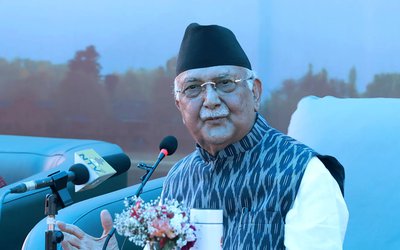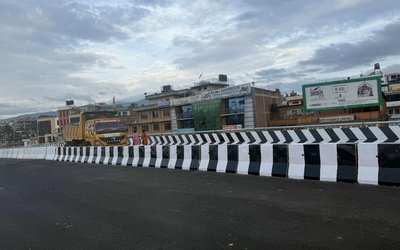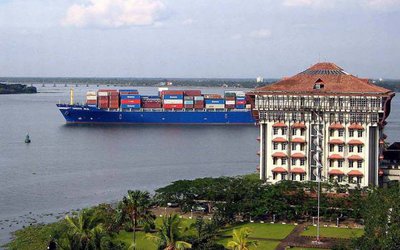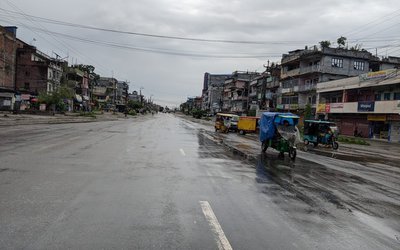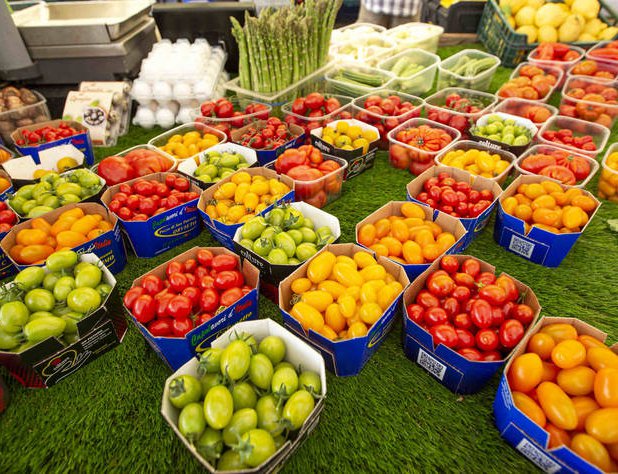
The global pandemic caused by COVID-19 requires a greater coordinated response on many policy levels, but particularly to ensure food security and nutrition for billions of people in the vast Asia-Pacific region, the Food and Agriculture Organization of the United Nations (FAO) reported today.FAO
FAO’s Regional Office for Asia and the Pacific has just published a series of regional policy briefs that analyse the impact COVID-19 is having on present food supplies in the Asia-Pacific region. The briefs offer recommendations on the way forward for protecting and ensuring food security and nutrition. They also offer recommendations on ways to counter and/or mitigate the wider economic collateral damage the pandemic can cause in the food, agriculture and fisheries sectors.
“Clearly we need to adapt many aspects of our present approaches to growing, harvesting, transporting, processing and selling food in this evolving era of COVID-19,” said Jong-Jin Kim, FAO Deputy Regional Representative and head of the FAO Regional Office for Asia and the Pacific. “We are all learning and adapting policies and approaches to work through, and around, the damage caused by the pandemic – both human and economic – and this is vital to our nutritional well-being and our livelihoods. These new regional FAO policy briefs for the Asia-Pacific region will help member nations achieve this.”
These first three regional policy briefs for Asia-Pacific focus on a number of key areas.
Policy brief on building more resilient food systems for Asia-Pacific
The COVID-19 pandemic poses a serious threat to food security and nutrition. Economic turmoil caused by the pandemic threatens both economic and physical access to food (FAO, 2019). Declining incomes may make food, particularly nutritious food, less affordable for some, especially the poor. Disruptions to and possible breakdowns of marketing, logistics and trading systems could make food unavailable in some locations at some times. Hunger and malnutrition could rise.
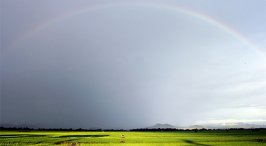
This brief assesses the current situation, provides some examples of how governments and other stakeholders are attempting to build more resilient food systems in response, and offers some broad policy recommendations.
Untying the red tape to keep food moving and trading throughout the region
The spread of COVID-19 has created tremendous uncertainty on a number of fronts, including the availability of food supplies. In such a situation, countries might be prompted to restrict their food exports to ensure greater domestic availability in the short term. However, such restrictions can cause panic, leading to price surges on international markets, and a breakdown of food supply chains. During the food price crisis in 2007–2008, trade restrictions contributed significantly to price spikes for various commodities (45 percent for rice and 30 percent for wheat (Martin & Anderson, 2020). Price volatility led to social unrest in many countries and made it more difficult for the poor to afford food, especially nutritious food.
This brief discusses recent food export restrictions employed in the region, analyzes their impacts, explains how export restrictions can hurt importers and exporters alike, and gives examples of good policies.
Fisheries and aquaculture – learning to sink or swim
On 10 April 2020, one month after the World Health Organization declared the spread of COVID-19 a pandemic, FAO published ‘How is COVID-19 affecting the fisheries and aquaculture food systems’ (FAO, 2020a). That policy brief, while global in scope, addressed the situation in some Asian countries. This paper provides an update, incorporating new data, developments and observations. During its writing, the pandemic was in full swing with no clear end in sight.
- Nepal-UK Tech Forum Held
- Jul 06, 2025
- Hari Sayani or Devshayani Ekadashi 2025: Day Of Tulsi Plantation
- Jul 06, 2025
- Siddhababa Tunnel Makes A Major Milestone
- Jul 06, 2025
- Weather Forecast: Generally Cloudy Across The Country With Heavy Rain At One Or Two Places Gandaki, Bagmati and Koshi Provinces
- Jul 06, 2025
- India’s External Affairs Ministry’s Senior Officials Says Indo-Nepal relations are ever expanding
- Jul 05, 2025




